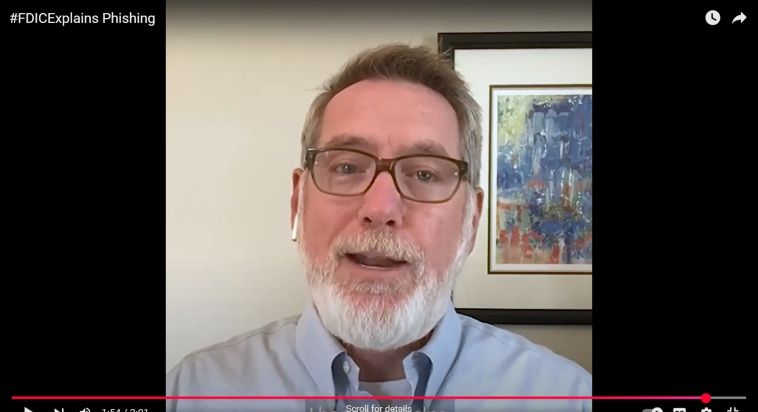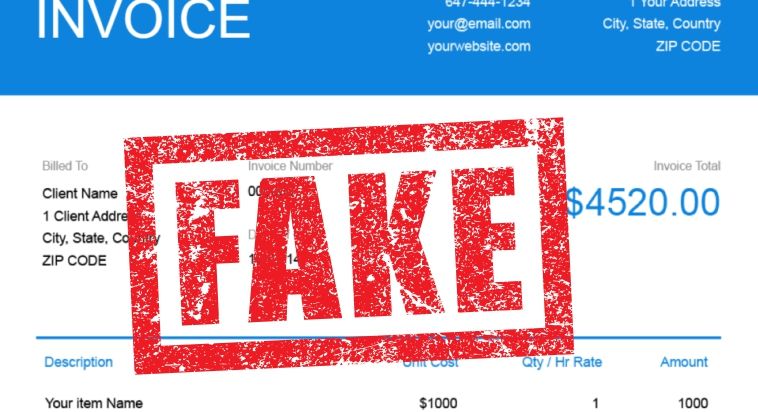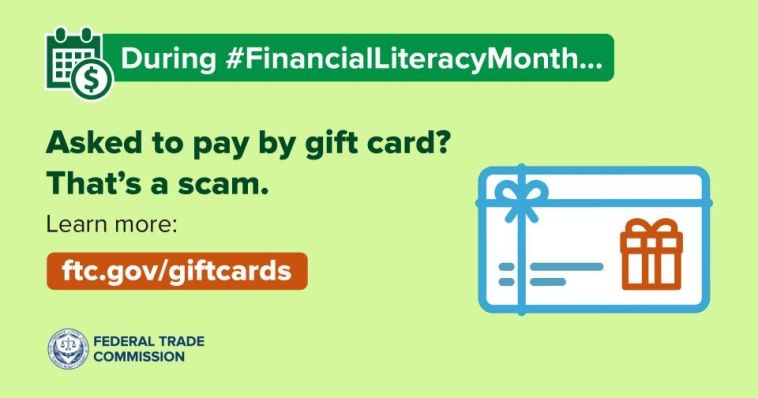IT & SECURITY CORNER
Your security is always a priority with Shelby State Bank. We seek to work together with you for the protection of your accounts, funds and personal information, and this is our hub for helpful information about your security.
WHAT'S REALLY SCARY...
There's nothing supernatural about the kind of scares involved in identify theft, but they are way more terrifying because they're quite real.
October is Cybersecurity Awareness Month, and the ICBA (Independent Community Bankers of America) has provided some tips to help you stay secure this month and all year round.
• Limiting disclosed information: Don’t respond to unsolicited requests for personal information, such as your banking ID, account number, username or password, even if they appear to originate from your bank, government agencies or companies with which you have a relationship.
• Creating strong and unique passwords: Use complex, unique passwords for each of your online accounts to avoid a domino effect if one password is compromised. Consider using a password manager to securely store and generate passwords and change them regularly.
• Enabling security features: Use the strongest multifactor authentication options offered by your bank. This adds an extra layer of security by requiring a second form of verification, such as a code sent to your mobile device, in addition to your password. Consider using an authenticator app or a secure token.
• Guarding against phishing attempts: Be cautious of emails, texts, or phone calls asking for personal information. Phishing scams often mimic legitimate companies, so double-check the sender's details, avoid clicking on unknown links, and report suspicious messages.
• Maintaining up-to-date software: Regularly update your devices' operating systems, apps, and antivirus software to protect against the latest security vulnerabilities. Automatic updates can help you stay protected without the hassle of manual intervention.
• Monitoring accounts for unusual activity: Frequently review bank and credit card statements for unauthorized transactions. Notify your bank immediately if you spot anything suspicious.

FDIC Video Regarding Phishing and Fraud
Theft doesn't just come from bogus emails; it comes from text messages, websites, social media, and other messages with links.
Fortunately, Shelby State Bank is not alone in our vigilance for your security. We have an army of partners helping to spread the word about the many threats, how to identify them, and how to avoid them -- like this video from the Federal Deposit Insurance Corporation (FDIC) and their #FDICExplains series on YouTube.

Spot the Red Flags
Scams keep getting more clever, using even mobile apps to get you to give up information to fraudsters. But fortunately, there are red flags and we want everyone to know how to spot them.
From emails and calls to texts and apps, check out this tip sheet from our partners at the American Bankers Association as part of National Cybersecurity Awareness Month and the #BanksNeverAskThat campaign.

Identity Theft: Prevention, Detection, Response
From our partners at the SANS Institute, please check out these updated points about Identity Theft in all its current forms.
Staying fresh on prevention is always important, and also pay close attention to ways you can detect if your information may have been compromised.
The response steps are also important, with an emphasis on acting fast!
Click below to check out the 2-page document, and feel free to download and share!
Social Engineering: Don't Open That Door!
Social Engineering is the term for a number of scam and fraud activities that have elements of truth that make them just believable enough that you'll crack the door open on information or access... and that's all the criminals need.
Even the savvy and skeptical among us can be tricked with information that appears legitimate. Check out the document below for excellent tips!
"Shields Up!" Click here for four pillars of basic family safety online, courtesy of the U.S. Cybersecurity & Infrastructure Security Agency (CISA):
The Latest in Card Theft
A very specific type of credit and debit card theft is skyrocketing. Thieves will get an image of your physical card and add it to their own digital wallet and begin making purchases. This is particularly awful for the victim as transaction disputes are more difficult.
Protect yourself in these ways:
- Keep your card in sight when purchasing. For example, don't let your card disappear around the corner when paying for food. (Many restaurants have put kiosks at the table to reduce the chance for staff to take photos of customers' cards.)
- Turn on card controls when your cards are not in use. This is very easy from our mobile app. At a minimum, turn them off for online purchases which is another card control you can apply through the app. This is the strongest protection as it makes your card unusable by anyone while switched off.
- Use the contactless payment feature ("tap to pay") in your smartphone's digital wallet so would-be thieves don't have the chance to get your card information into their own devices.

New Twists on Old Scams
Fraudsters are persistent and always adapting, and they have sure been busy this year! AARP has done an excellent job describing the latest twists in scam, fraud and theft attempts, including some that will surprise you!
It's a quick read with great tips. Check it out and share with family, friends and colleagues.

Unsolicited Mortgage Offers
When you apply for a mortgage, or really any kind of credit or loan, that action becomes part of your credit report. Many mortgage companies and lenders purchase lists of recent inquiries, and that is likely to trigger offers of all kinds of lending products.
Often these marketing messages include information that will surprise you, such as the actual lender and the amount of the loan! While it is a legal process, for many people it feels very invasive and unsettling -- not to mention just a nuisance in your mailbox, email inbox, and even your text messages.
But good news: If you would like to cut down on your junk mail and telemarketing calls, there is a way to opt out. Click the link below for the steps to do so!
Scam Texts
If you get a text message saying you have won a prize, that your shipment is delayed, that there was a problem with an online purchase, or any other unusual and unexpected notification, be wary -- and do not click on a link.
These messages are not necessarily new, but they are going around again and causing major headaches for curious recipients who click through. Clicking leads the user to websites asking for personal information and/or requiring additional purchases, suspicious offers, etc.
Here's what the Federal Trade Commission recommends instead:
- Legitimate companies won't ask for sensitive information by text, so delete any text message that does. Don't reply, just delete.
- Don't click on links. They very often lead to sites that will steal your personal information.
- Report spam messages to your carrier. Copy the original message and forward it to 7726 (SPAM) free of charge. Or use your phone's "Delete and Report Junk" feature if available.
We are on our phones all the time, and scammers know it. Follow these tips to stay protected!

Business Owners & Managers: Direct Deposit Frauds
The latest fraud scheme circulating right now in Michigan uses emailed requests with new direct deposit instructions to steal your employees' paychecks.
When you receive an email with new instructions for direct deposit information, do the following:
- Verify the email address is valid and belongs to your employee
- Obtain a signed consent from the employee to change their direct deposit instructions
- Use contact information you already have on file to verify the new instructions with the employee
- Verify the new routing number is for a local financial institution; out-of-state institutions are a big red flag
With any combination of the above, you should be able to confirm the validity of any such request - or identify a request that is bogus!


Business Owners & Managers: Fake Invoice Scams
False Invoice scams have been rising in frequency. Scammers are counting on the volume of invoices you have going in and out to slip a fraudulent invoice into your payment stream. Here are tips to help you make sure you don't pay anything that is not legitimate!
Recognizing fake invoices:
- Unexpected invoice from an unknown party or vendor
- Change in payment instructions (i.e. new account # or routing #)
- Asking for information not previously needed (such as private financial or account info)
- Suspicious attachments
Avoiding invoice fraud:
- Call to verify a questionable invoice with a known company contact
- Call to verify any change in payment instructions; don't rely on an email message alone
- Use known contact information instead of a phone number or email address from a suspicious invoice
- Review information like URLs and email addresses for misspellings or grammatical errors
- Be especially wary when you see unusual time-sensitive requirements or payment pressure
- Watch for blurred, unfamiliar or doctored logos
Contact your SSB Business Banker for additional assistance anytime!
Don't Be Fooled:
Neither Shelby State Bank nor the IRS will ever contact you unexpectedly and ask for your passwords, Social Security Number or other personal information over the phone, by text or email. If you see a request like this, you can be sure it is a scam. Don't reply, don't click, and don't believe what you see.
If there is ever a question about the legitimacy of any communication between Shelby State Bank and you, always feel free to verify by calling us directly.
A great tip for spotting a scam is to look at how a message tells you to pay.
You see, legitimate buyers and sellers utilize fairly ordinary channels to do business with you. So when you get a message with convoluted steps or strange methods (like paying with gift cards or crypto ATMs), you can confidently stop right there.
For an interesting read on all these scam methods, click below and share freely!


Password Smarts
We should all know the fundamentals of password security by now, but it is so easy to take shortcuts for sake of quick recall or to assume that a certain account is not substantial enough to be targeted.
Click here for a timely refresher on passwords that are truly secure.
Tips for Avoiding Phishing and Other Scams
There is a constant onslaught of attempts to steal key pieces of your personal information. The sheer numbers are staggering.
Fortunately, there are recognizable patterns used by scammers which means a little education goes a long way towards prevention. Click the link below for a short article by FDIC that describes phishing and other ways criminals seek to fool you into handing over your sensitive information.
It's easy to print, download or share. Spend a couple minutes to learn what to watch out for!





